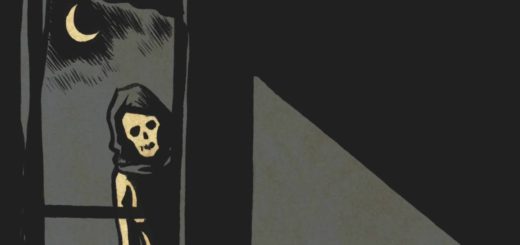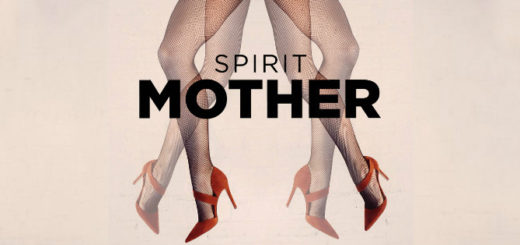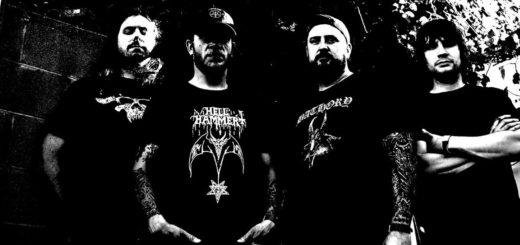Interview: Justin Pearson of Dead Cross
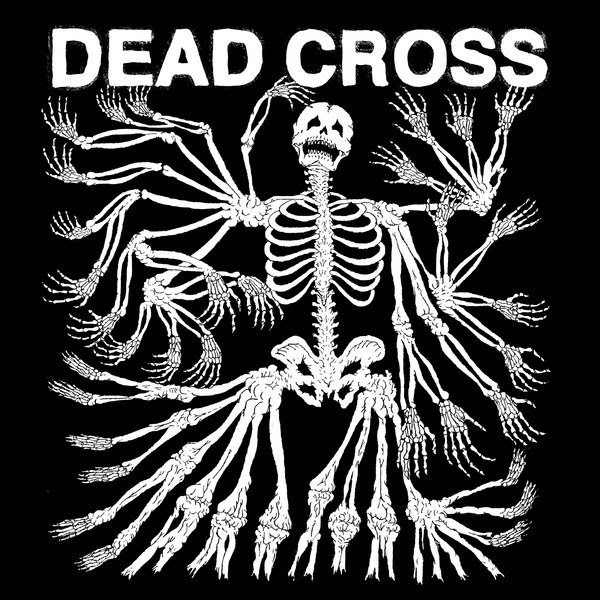
I sat down with SoCal punk/hardcore/noise icon Justin Pearson before the first ever live show of Dead Cross—the new hardcore/metal outfit featuring Justin, Mike Patton (Faith No More, Fantomas, Mr. Bungle), Dave Lombardo (Slayer, Suicidal Tendencies, Misfits) and Michael Crain (Retox, Festival of Dead Deer)—at The Observatory on August 10th to talk about their debut album, DEAD CROSS (out now, via Ipecac Recordings), the live experience, the state of music, and maybe a little about the world.
Thank you for being here! And on behalf of Crossfader Magazine! It’s the first day of the tour, are you guys excited about it?
J.P. Yeah. Yeah, it’s our first time playing with our singer now and I just wanna do it.
How do you think the audience is going to be reacting to this new band?
J.P. Oh, I hate that question. I don’t ever care.
You don’t care?
J.P. I’ve played so many shows where people like it, and people hate it. I guess my only concern is if people are indifferent, you know? I’ve been on both sides of the fence; like I’ve headlined, and I’ve opened. And usually when you headline, people like you, and when you open, people don’t like you. And I can vibe off of both of those.
So you’re going to hate if there’s a whole bunch of phone screens in the audience?
J.P. It’s just like, go the fuck home, then, you know? I wouldn’t pay money to go watch something and look at my Twitter feed. I mean, I guess it’s important now because we’re about to go nuclear war, but, other than that, I don’t really see what’s that important.
This is the first time you guys have all come together as a band, and your origin story is pretty crazy, but, if I’m not mistaken, you guys met when The Locust and Fantomas were touring back in 2005. Were there any seeds of collaboration planted back then?
J.P. No, no, I never thought. We’ve kind of joked a little bit with Patton, but he had already done the thing with Dillinger [Escape Plan], so there were no hopes of getting him to sing with The Locust. We were like, “That’s already been done.”
I may already know the answer to this, but where did the decision—between your own label, Three One G, versus Ipecac [Recordings]—to put this album out on Ipecac come from?
J.P. Well, before Patton was in the band, when we were recording, it was already kind of established that Three One G would be an imprint to whatever label we ended up signing with. Because Ross Robinson was involved it was probably going to be on a bigger metal type of label, and so we wanted to sort of keep touch with our community. So that was why Three One G was going to be involved. And then Ipecac got involved and it just made sense to have both labels represented.

Photo Credit: Joseph Simpson
One thing I noticed while listening to the Dead Cross album is that, to me, it sounds almost stripped down from what you’ve done with The Locust and Retox. Can you elaborate on that, or is that just how it came out?
J.P. I mean, it’s different players. I think with Retox we were kind of coming from more along the lines of where our roots were—Locust, and Festival of Dead Deer, and kind of just like more spastic, absurd music—and I think when we started writing with Lombardo, we weren’t really sure. The idea, initially, was to play three shows, and we had 12 days. So, we instinctively wrote simply to be able to perform enough music that we had less than two weeks to write. So that became the record.
You guys have all got decades of experience under the belt, and you’ve been doing this since ‘94 when you started Three One G. Leading into that, I was wondering what your opinion is, or any feelings you may have, on the state of heavy music today. Do you feel like it has changed?
J.P. Sure. Everything about the world and the planet that we live on has changed. And, if it didn’t change, it’s just nostalgia. I mean, I think everything’s changed. The amps that we play, or the sound systems that venues have, or the way people tour, or the way people don’t care about music or art as much as they did before because there’s an oversaturation from the internet. And, also, I think on any kind of intense level, like being heavy or fast or whatever, it’s all kind of graduated since then. It’s like music is constantly—or everything art is constantly evolving on certain levels. So what was fast and heavy when I was 15 could never have been conceived as it is now.
With that kind of instant gratification—like, click a button on the internet to hear anything out there – how do you feel the live experience translates into that now?
J.P. I don’t think it’s as special anymore. Not as much as it used to be. You used to have to seek something out, and you used to have to go see it to really know. So I think when someone hits a button and watches it, they shortchange themselves on so many levels. Because you don’t get the natural, raw energy that happens, and you don’t get to see the energy being exchanged with the audience. It’s just a lazy way, and it also makes it seem not as special. I remember going and seeing bands like The Cramps or PiL when I was a little kid, it was just, “Yeah, I love the records,”—and there was no such thing as the internet at that point— but going and seeing it, you would go home feeling like you got your ass handed to you, you know? You’re just, “Fuck! I saw this thing!” and it changes your life—maybe, not that our music will change your life. What I’m trying to say is that element of music isn’t as utilized, I guess, because people do just stay home and push play on the computer, and that’s enough for them.
Lame question, but how do you feel about that?
J.P. Whatever. You know how there’s people that are like, “I fuckin’ hate it!” or people that fuckin’ love it. It is what is is. What’re you gonna do? I mean, yeah, it’s convenient—It’s convenient, I’ll say that. Convenience isn’t always good, you know? It’s like, you can go get fast food, or you can go buy organic ingredients and go home and cook it. There’s pros and cons. You just got it right away, or you gotta fuckin’ chill out and make it super rad, and it’s awesome when you’re finally able to have the food. For a food analogy.
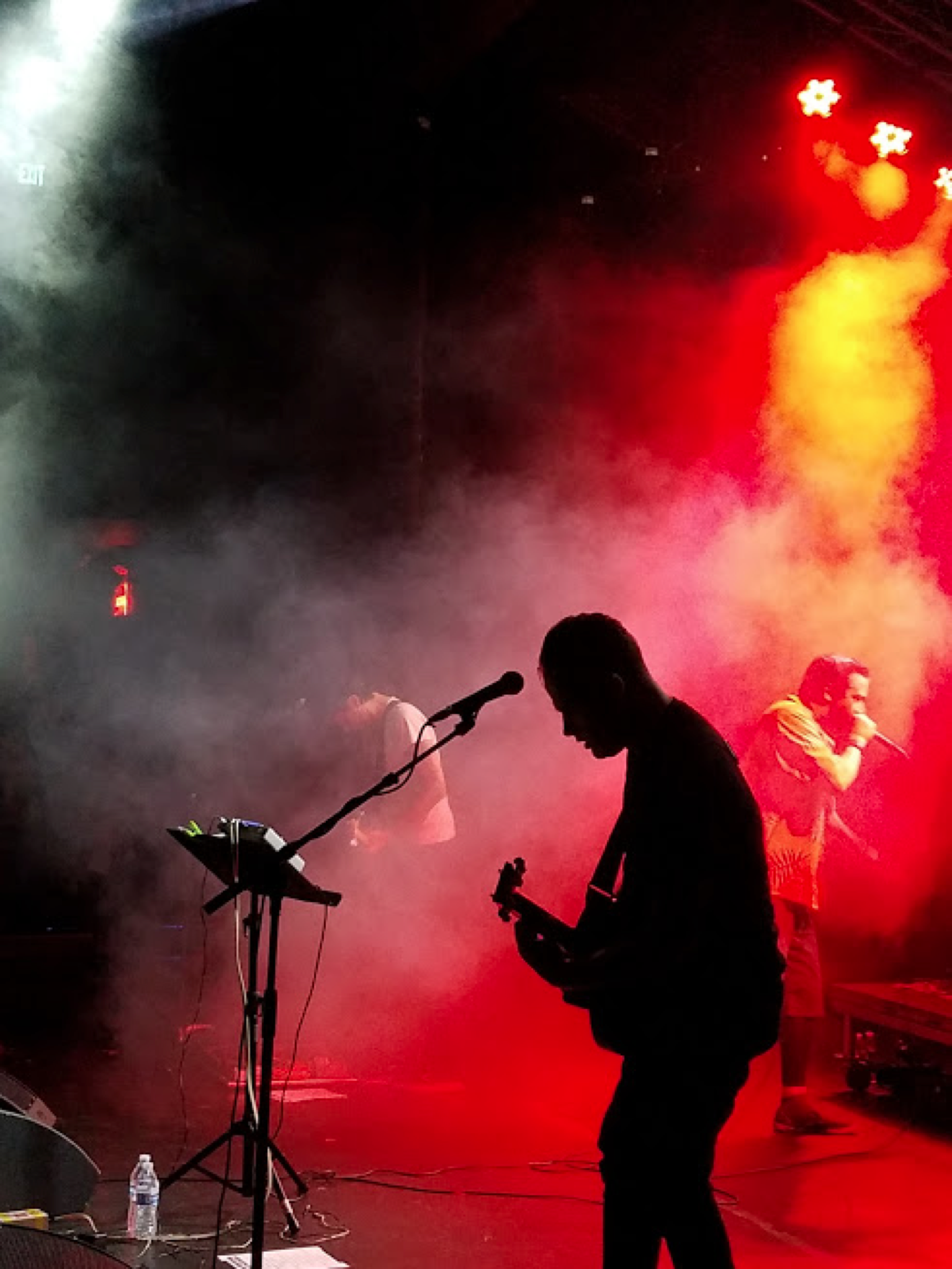
Photo Credit: Joseph Simpson
I had a couple questions about some songs in particular. I’m loving your guys’ “Bela Lugosi’s Dead” cover, it is really cool! Was there a certain reasoning for choosing that song?
J.P. That we needed to write a live set. And the ideas of playing a cover were more metal ideas, and I was like, “No, no, no! Let’s do something that no one would expect!” And it’s like two riffs, so like, “let’s just do this, and it will totally work for the first shows,” and it stuck.
Were there any other song ideas you were thinking about?
J.P. Yeah, but they were just like metal kind of stuff. We were talking about doing Infest, and stuff like that, which is kind of where Mike Crain and my roots are, but—
Might be a little on the nose?
J.P. Yeah, and like, “Oh, there’s 40 more seconds!” when we needed like four more minutes. So we needed a real long song, and that kind of just was what it was.
Well, I think you guys did a fantastic job.
J.P. Thanks so much! I really do think that Patton made it. It’s a little bit of a taboo song to cover, it’s like trying to do a Black Sabbath cover—you probably shouldn’t do it.
Yeah, there’re just some of those songs.
J.P. Yeah, and Patton was even saying, “Fuck, I don’t know about doing this, guys.”
The other one, and I hate to do the predictable questions or to feed into things you’ve been asked a million times, but “The Future Has Been Cancelled.” I know you’re a fairly political guy, were there some, let’s say, current events, going into that song?
J.P. Well, Patton wrote all the lyrics, and he asked me about song titles, and I actually gave him some ideas, and that was one that he took. And it is sort of ironic because it is very fitting. Leading up to right now today, at that point we weren’t graced with #45, but there was still the idea that we’re gonna be fucked, you know—the future has been cancelled. I mean, just the fact that it was even on the table was probably enough to say like, “This is gonna be a song title.” And it makes sense, and it will hopefully resonate with people.

